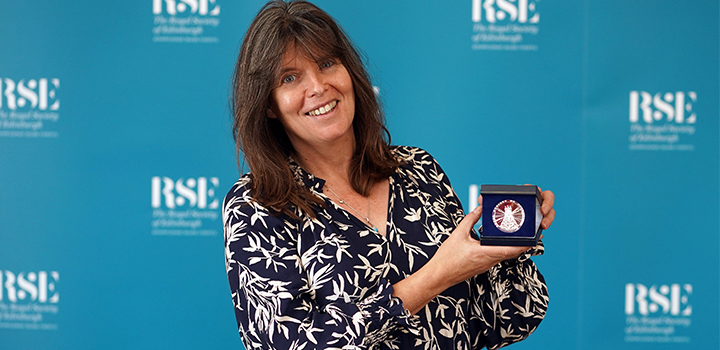Student launches sustainable specs made from fishing nets
By: News Archive

A University of East Anglia (UEA) student is set to launch a range of spectacles made from recycled fishing nets in a bid to remove plastics harming marine life, and human health, from our oceans.
Second year student George Bailey is launching Coral Eyewear, a range of frames made from ghost fishing nets, which have been abandoned at sea and would have otherwise remained in the marine ecosystem for hundreds of years.
The 19 year-old from Canterbury has now secured £50,000 worth of funding from the University to launch what is thought to be the first-of-its-kind range of glasses and sunglasses frames, early next year.
It is estimated that 34 million people in the UK have an eyewear prescription and 9 million eyewear frames are produced in the UK each year. The global industry is growing at 2% due to lifestyle changes, aging populations and increased screen time, and with people more conscious about the impact of the products they buy, George is hopeful that his eco-friendly product can make a difference.
He said: “I’ve been inspired by the big characters in climate change like David Attenborough, and it all helps to build awareness around plastic waste. But what I’d like to come across, is that everyone can make a difference; you don’t have to be a big TV personality. By just making a few small changes like your choice of glasses, you can make positive impact.”
It is estimated that 640,000 tonnes of ghost fishing nets, mostly made from nylon, have been dumped at sea which result in the accidental capture and killing of dolphins, turtles and other marine animals. In fact, World Animal Protection estimates that one abandoned net entangles and harms 30-40 marine animals each year.
But it’s not just their effects on marine animals. The nets break down over time into tiny fragments, otherwise known as micro plastics. Dr Andrew Mayes, an expert in micro plastics from UEA’s School of Chemistry, said: “We are only just beginning to understand the levels and distributions of microplastics, and their potential to stress organisms and harm ecosystems. Any initiative that takes plastic waste out of the ocean is good for the environment, so I hope this business venture proves to be a great success.”
George has partnered with a company who already source fishing nets and other plastics to produce fabrics for brands such as Adidas and Stella McCartney.
The Coral Eyewear frames are made by melting the plastics and using an injection mould to create the frames. The work is done in a family-run factory in Italy and will be shipped to the UK using sustainable transportation.
“Most people tend to change their frames once a year and it is hoped that the quality of these frames will mean this happens less often.” says George. “However if people do need to change the lenses or would like a different style, colour or finish, they can send the frames back to us to recycle.”
He has been able to tap into funding from the University’s enterprise fund which supports students and graduates to realise their entrepreneurial dreams through workshops, mentoring and funding. George has been awarded £50,000 from the ‘Scale It’ award, which invests in those looking to secure substantial growth and take their business idea to the next step.
With the initial launch in January 2020 there will be six optical frames and a range of sunglasses. The designs are timeless styles to ensure that the products aren’t ‘fast fashion’ items, which add to the problem that George is attempting to solve.
George has already been approached by a number of large retailers who want to stock the product in their stores, as well as independent opticians and individual consumers themselves.
George will be speaking at the UEA event, ‘Next Generation Ventures’ on Wednesday 20 November showcasing student innovators and entrepreneurs who are shaping tomorrow’s world, today. He’ll be talking about the importance of young people being engaged in the business environment for the future of our planet.
Read more: Student launches sustainable eyewear brand with Jake Humphrey
Related Articles

Prof Jenni Barclay honoured by the Royal Society of Edinburgh
Prof Jenni Barclay, Professor of Volcanology, has been honoured for her contributions to the emerging field of social volcanology by the Royal Society of Edinburgh with the James Hutton Medal.
Read more
Protect delicate polar ecosystems by mapping biodiversity
Polar regions contain vast, undiscovered biodiversity but are both the most-threatened and least-understood areas of the world.
Read more
Six UEA professors named in Highly Cited Researchers 2023 list
Six UEA professors have been named in the annual Highly Cited Researchers list for 2023, which celebrates some of the most influential researchers in the world today.
Read more